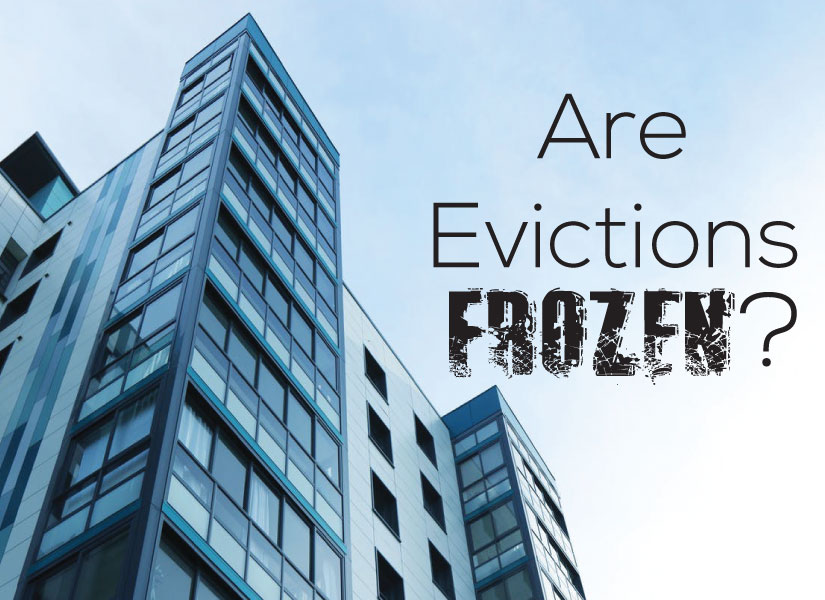Landlords everywhere are getting a barrage of requests from renters to temporarily reduce rent during the COVID-19 public health emergency or not receiving their rent payments altogether. According to the National Multifamily Housing Council, only 69% of apartment tenants had paid their monthly rent by April 5, down from 81% the previous month – a trend that most likely will worsen.
Not all eviction freezes are in place, so landlords in Massachusetts still have some options.
Across the U.S., there is a new legal landscape that includes rules that could either protect the landlord or the tenant, depending on which state you own rental property. At this time, only New Hampshire and Connecticut have frozen the eviction process entirely. To see a current list of moratorium updates on states including Mass, maintained by Columbia Law School, click here.
Big Issues Right Now
Checks Are In the Mail, Except..
Many tenants’ government checks have not made it into their bank accounts. Still, there’s no guarantee that some of that money will go to their rent in the short-term.
Court Closings
In Massachusetts, it’s already made news that tenants continue to receive Notices To Quit, summoning them to court even after COVID-19 had closed the courthouse.
Ban on Eviction Notices
In nine states so far, landlords are temporarily prohibited from sending an eviction notice to tenants. Massachusetts has not yet ruled on this so if you must take steps to evict, the sooner the better.
When The Courts Finally Reopen, Potential Delays
If a tenant is not willing to work with you, put steps in place now to get the eviction process in motion or you could get caught at the back of the line as the courts are flooded with eviction filings. Obviously, an ideal scenario would be to work out repayment steps with your tenant, to avoid the backlog in court.
There are several steps in an eviction, including giving notice to a tenant, filing a case in court, and having a judge give the go-ahead for an eviction to proceed. When the “new normal” no longer includes a standard process to evict, problems receiving timely rent checks worsen.
Landlords Are Taking the Law Into Their Own Hands
In many cases, local and state courts are not processing eviction orders and law enforcement officers are not enforcing them, causing landlords to take the law in their own hands (changing the locks, confiscating belongings, etc). Landlords who use any method other than the eviction process should consult an attorney before taking any action.
“Reports of government-backed eviction and foreclosure freezes have mostly created confusion and misguided suggestions that need to be clarified now,” says Robert R. Pellegrini Jr. Esq., “while it’s still not too late to salvage the landlord-tenant relationship.”
What Landlords Need to Know Now
- Are my tenants required to pay in full?
- Yes. Government directives cannot alter your private contracts. All that some have done is merely put limitations on eviction. Furthermore, they have certainly not said that rent (or any other financial obligations) are magically not due. So, here are some of our most basic suggestions for working with your tenants during the COVID-19 pandemic:
First: Just as with any other agreement dealing with real property, any decisions a landlord makes with your tenants should be in writing.
Second: If you’re working with tenants during a state-mandated grace period, which may be put into effect by all states at some point, there are some basic topics that should be addressed:
(a) Define qualifications for a payment reduction: for example, would you like written documentation that shows why the tenant can no longer pay the agreed upon rent? It’s important that the document states that documentation must be submitted and reviewed by the landlord. Also, that landlord has the ultimate decision in both whether or not to allow for a temporary modification of the agreement and also by how much the agreement may be modified. (It’s also a good idea to require the tenant to proactively provide notice when things change)
(b) It is best to define what the landlord would consider to be a, “false representation” and then what the repercussions are of making one (or more). In our experience, it is usually best at the very least to immediately and without notice revert to the terms of the original contract, if not make it a cause for eviction. After all, working together must involve mutual trust and respect and if one party cannot honor that basic tenant, then do you really want to continue a contract with them?
(c) In most cases, unemployment does not change utility costs, maintenance costs and taxes. So, it is very important to restate that the tenant must continue to pay their way. You cannot forget to do this!
(d) Finally, it is always important that the landlord reserve its rights in the original contract. After all, any amendment will not be all encompassing, so it’s important that the modification very clearly reflect that it is not a new, stand-alone agreement.
PK Boston Law is a full-service law firm that offers legal counsel to real estate developers, contractors and businesses in the Greater Boston area.
The above information is designed to provide a helpful overview of a relevant topic. It does not constitute legal advice nor should it be construed as such. Please do not take action based on the above information without seeking formal legal advice. If you would like additional information, please contact Attorney Robert Pellegrini, Jr. at (508) 807-1131


